Most of us fell in love with baseball as a child. That’s when our imaginations were the most fertile, when we could easily picture ourselves standing on the mound in the bottom of the ninth or up at the plate with the bases loaded and the World Series on our shoulders. So, it shouldn’t be a surprise that some of the greatest baseball movies are those featuring kids. Whether they’re out on the sandlot getting their knees dirty or — through some magical wish fulfillment — are actually in uniform and out on a Major League diamond long before they can even drive a car, these films speak to both the young and the young-at-heart.
But which one best captures the feeling of being a kid and dreaming that anything is possible? Wrapping up our two week jaunt through baseball movie history, we’re looking at the best baseball movies that let the kids play. We’ll be debating “The Sandlot,” “Little Big League,” “Rookie of the Year,” and “Bad News Bears,” to find out which one of these can make us feel like a little kid all over again.
Our panelists for this one: Rhett Bollinger, Ian Browne, Alyson Footer, Bryan Hoch, Kennedi Landry, Mark Sheldon, Zach Silver
Alyson Footer, editor/moderator: Let’s start with “Rookie of the Year.” I liked it. I thought it had some genuinely funny moments. I read the reviews on it while prepping for this discussion, and, as I expected, a bunch of stuffy middle-agers were pretty critical. I thought they could stand to think a little more like a kid. I’m guessing teenagers liked this one? Discuss.
Ian Browne, Red Sox beat reporter: I thought “Rookie of the Year” was a lot of fun. I was impressed with myself when after getting my first look at Henry Rowengartner, I was like, hey, that’s Kevin from “American Pie.”
Mark Sheldon, Reds beat reporter: I once ran into Thomas Ian Nicholas (Henry) in the Wrigley Field pressbox, since he was doing the seventh-inning stretch there. Although he was a likable kid and did the movie role well, I didn’t have the courage to say then what I will say now … this is a terrible baseball movie. Besides him, the movie was pure tripe.
Bryan Hoch, Yankees beat reporter: This is my favorite of the group. I was 11 in 1993 when “Rookie” came out. Everyone in our neighborhood wanted to be Henry Rowengartner. I wonder how many kids intentionally hurt their arms hoping to make it to the big leagues.
Browne: While the storyline in “Rookie of the Year” is as unrealistic as the one in “Little Big League,” this movie was actually done in an endearing way. I agree with Hoch. I thought it was a fun baseball movie and the characters all developed and they grew on you and you were rooting for them.
Footer: I laughed every time his manager messed up his last name. Calls him rosin-bagger, run-amok-er. So funny.
Rhett Bollinger, Angels beat reporter: And don’t forget gardenhoser! This movie had a lot of good one-liners. And Daniel Stern’s character as one of the coaches was hilarious.
Footer: I’m on the other side of the fence on Stern. Love the actor — he’s awesome. But the character was completely over the top as the pitching coach. It was funny at first but then he just turned into a buffoon.
Sheldon: Like Alyson, I was in college when it came out so I don’t have the kid-like approach some of you might have. But what I didn’t like about it was the buffoonery.
Browne: I’m with you on the pitching coach. He didn’t do it for me at all. Other than that, the movie is a double with a wide turn around second.
Kennedi Landry, Rangers beat reporter: Pretty much all of these movies require some suspension of reality since it’s something that would never happen. I found myself enjoying it on re-watch a lot more than I expected, to be honest. It’s not my favorite of the bunch but I had a lot of fun.
Zach Silver, Cardinals beat reporter: The whole premise of the movie reminded me of that fan at Fenway a few years ago who hit Giancarlo Stanton rounding the bases with a throw back from the Green Monster. If that guy got a chance to play in the Majors. I sort of like that idea — these players are freaks of nature but let’s see what an average Joe has against ’em.
Footer: I did like how the slugger at the beginning of the film, when Henry first joined the team, took him deep right away. Drives home the fact that it doesn’t matter how hard you throw — if a Major League hitter knows it’s coming, he can hit it a mile.
Silver: I didn’t love the facial expressions of that slugger, though.
Browne: He looked more like a monster than a baseball player.
Bollinger: Yea, a little over the top.
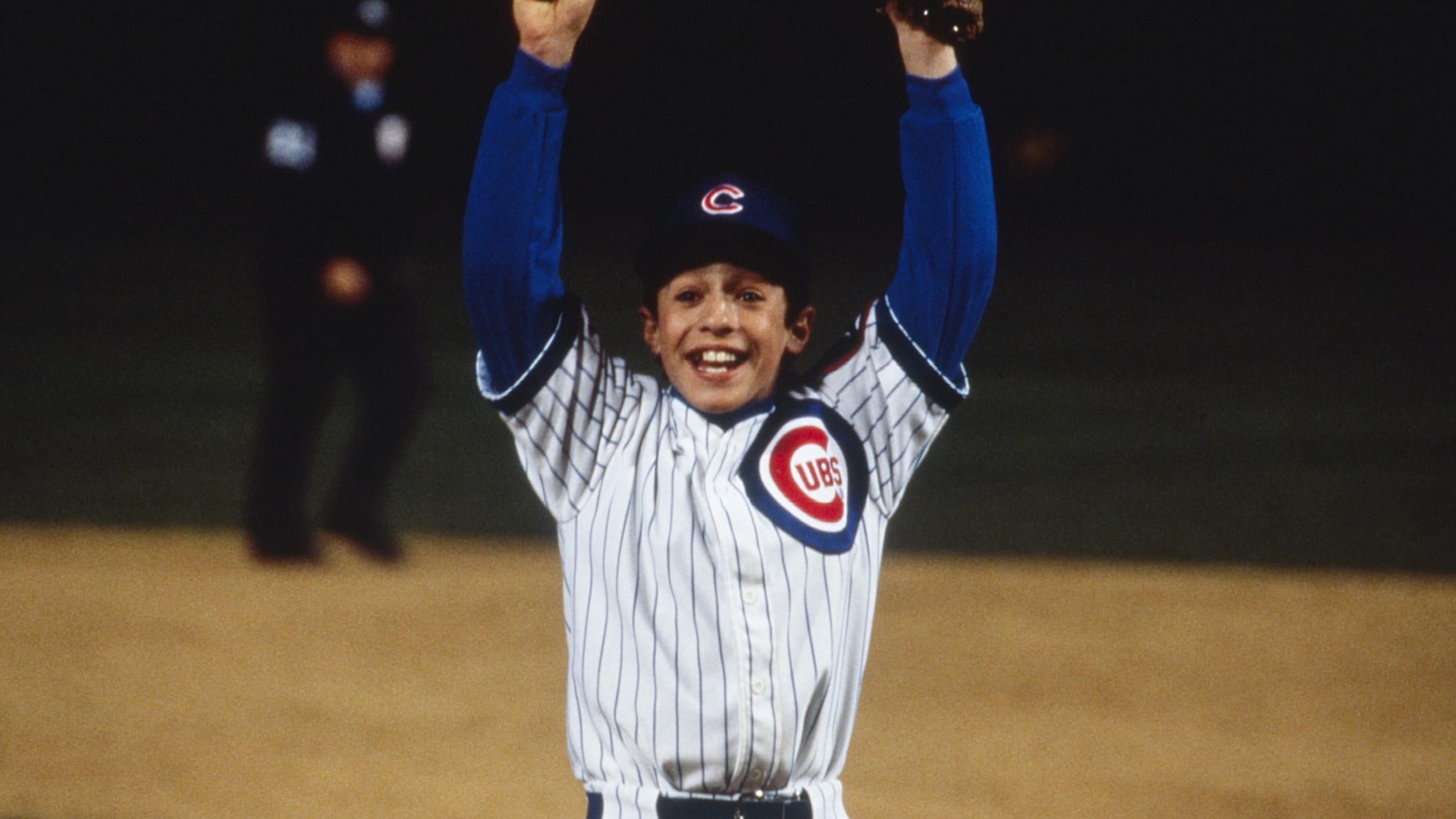
Browne: Also, John Candy! Any time I see John Candy, I’m happy. It was funny seeing him try to be Harry Caray-esque as the Cubs announcer. “The Cubs’ winning streak has reached a season high of … two.” That was a funny line.
Sheldon: John Candy is a great actor but imagine how great it would’ve been if the play-by-play guy was Harry Caray.
Landry: My favorite part was the strikeout montage when we see a young Pirates upstart Barry Bonds.
Bollinger: I also loved Chet Steadman and when he goes to the mound to give Henry advice and talks about the “have to.”
Hoch: I actually remember Chet Steadman talking about Salisbury steak on the airplane. Had to try it after that.
Sheldon: Compared to a film we’ll be discussing soon, “Little Big League,” which took the baseball parts seriously and had the right feel, this one had no feel. It just felt hackneyed. Daniel Stern getting locked in a locker cage? But yes, the manager blowing Henry’s name repeatedly was great. Probably something Lou Piniella did.
Footer: Those of us who have been around a couple of decades longer than the movie appreciated the “Wizard of Oz” reference, when the kids were trying to get into the ballpark — “Well, that’s a horse of a different color! Come on in!” That was very clever.
Also, the Diet Pepsi commercial — “Uh huh, uh huh …” one of the most ’90s things ever. That was fabulous.
Hoch: How about Eddie Bracken as the Cubs owner, right after giving Kevin McAllister the turtle doves in “Home Alone 2”?
Footer: We’re keeping a loose track of how many baseball movies we can watch that portray the media in an unrealistic light. Add this one to the list. Please, movie directors, can you stop having reporters screaming questions at the players? That’s not how any of this works.
Hoch: Right. Now we use the “raise hand” function on Zoom.
Landry: Unrealistic and very, very unflattering.
Silver: Although I’ll say in “Little Big League” I found the postgame scrums to be very accurate as to what they’re actually like. Well, back in the day.
Browne: How about hiring actual reporters to play reporters in movies? I think that would work better.
Footer: Let’s move on to “Little Big League.” Not my favorite. Not my 30th favorite either, come to think of it. I was really stoked when it started. Jeff Garlin! Jason Robards! Yay! And then … nosedive.
Browne: How can I politely say that I thought “Little Big League” was awful?
Sheldon: Unlike “Rookie,” this was a good movie.
Silver: Controversy!
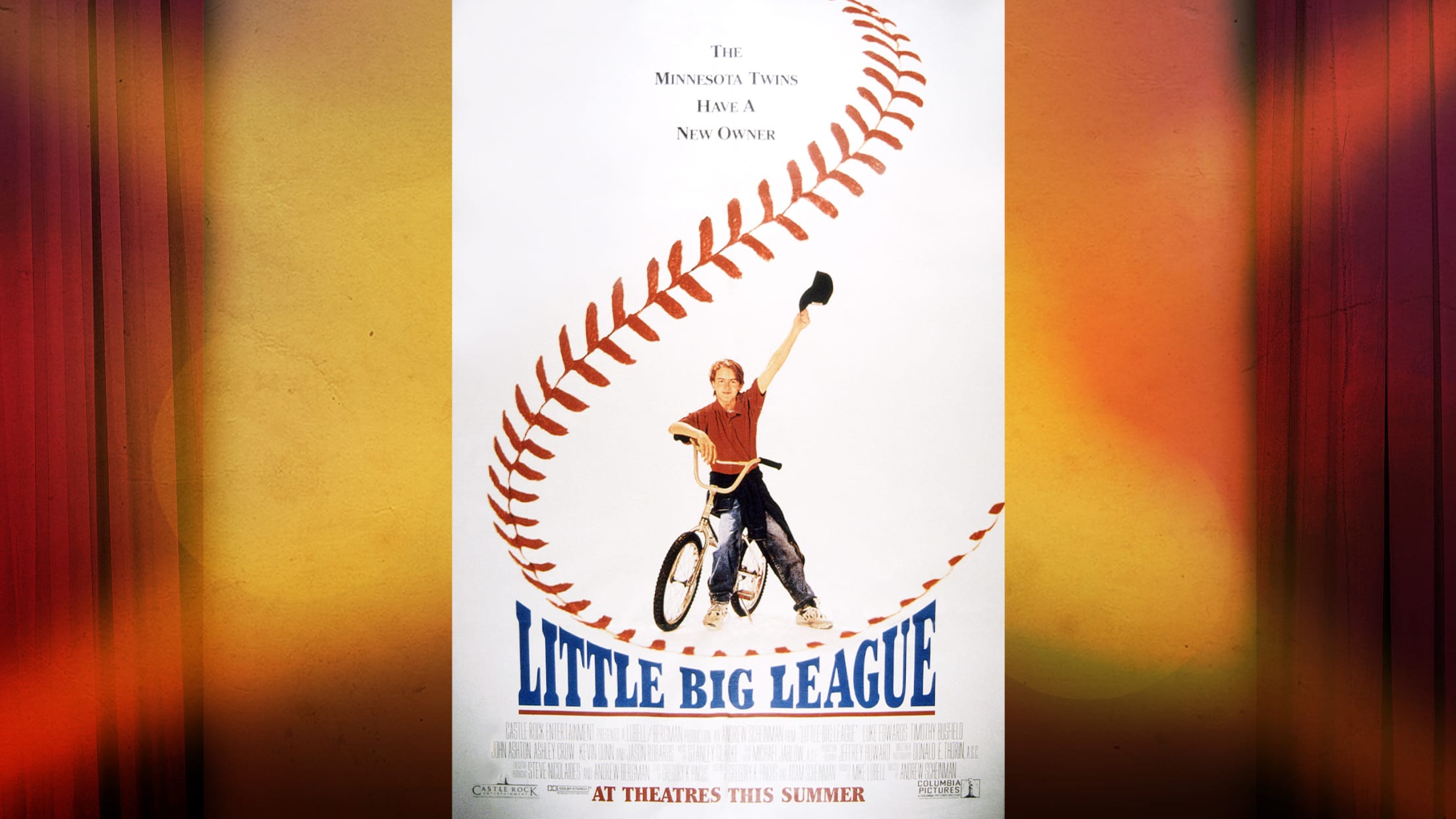
Sheldon: What’s awful about it?
Browne: I thought the kid was obnoxious and didn’t make me want to root for him.
Footer: I felt like there was no originality, except for the fact that they managed to corral a bunch of actual Major Leaguers to appear, which was cool.
Browne: Yes, it was cool to see Ken Griffey Jr. and … Dave Magadan. And a bunch of other big leaguers. That was the best part of the movie.
Sheldon: In “Little Big League,” the kid actually kept the fantasy alive because he really believed he could manage and comported himself as much as he could as a serious manager. Eventually, the players bought in and the clubhouse scenes had that feel.
The scene where the kid had to cut his favorite player was solid. And the player didn’t let him off the hook for telling him he had his baseball card.
Bollinger: I’m partial to it because I covered the Twins for eight years and a lot of my friends there in Minnesota loved it. I saw it in theaters as an 8-year-old, so I enjoyed it then. It was fun to think about being a manager as a kid. But it hasn’t held up quite as well and isn’t as funny as “Rookie of the Year.”
Sheldon: And John Gordon actually did the play-by-play.
Bollinger: Yeah, the first time I met former Twins play-by-play announcer John Gordon, I told him I knew who he was only because of the movie.
Silver: I enjoyed “Little Big League,” but mostly just for the fantastical element of it. But even still, it felt like people were waaaaaaaaay too OK with a 12-year-old managing a team. That was a focus, but still, felt like it got brushed aside way too quick.
Footer: The movie did have a couple funny mom lines — “You’ve got something on your face” and then licks her thumb and starts rubbing his cheek. Every kid’s nightmare, even when it isn’t shown on a jumbotron. Too funny.
Sheldon: And this movie was ahead of its time. Randy Johnson came in as a reliever to close out the game … something he would do later in life.
Hoch: I don’t remember loving this movie as a kid. We didn’t have it in the VHS rotation even then. The Metrodome looks good in this one, though.
Landry: Though still not realistic at all, it felt like something that could happen and the kid wasn’t a bad manager! Unlike “Rookie of the Year.”
Bollinger: I did like Lou Collier’s character. I was rooting for that home run as a kid. But it was cool to see Randy Johnson and Ken Griffey Jr. as the “bad guys” at the end.
Browne: I thought it was cool that the manager had a blind spot for that aging slugger because he was his favorite player when he was a fan. But he finally cut him.
Also, props to this movie for getting Jason Robards. He is one of the great actors ever. The worst part of the movie is when the Robards character died so quickly. He is such a great actor.
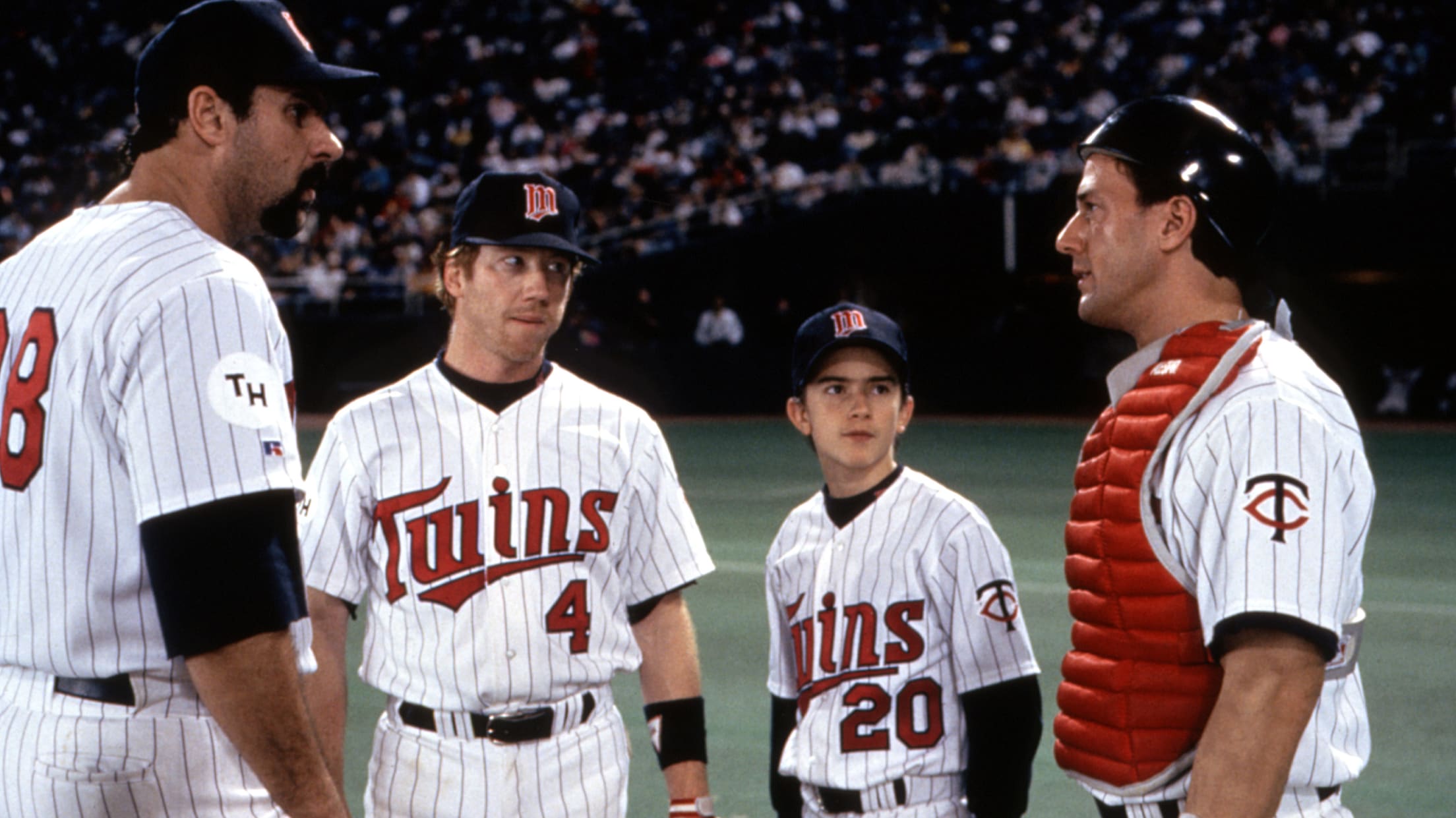
Footer: I did like this part after the grandfather dies: When Billy finds out he inherits the team, the lawyer says, “Isn’t that great? Your grandfather gave you the Twins!” And he answers, “I’d rather have my grandfather.” That was pretty good.
Landry: No lie, I shed a couple tears at the beginning.
Bollinger: And just like “Rookie of the Year,” it did have a lot of cameos from MLB players, which I thought was really cool as a kid.
Browne: I think this movie had even more MLB players than “Rookie of the Year,” which, again, is one of the few things that made it redeemable at all.
It’s not a good movie when you’re actually rooting for the movie to end more than you’re rooting for the Twins to win.
Landry: I think it also felt realistic that Billy, while being a horrible friend, kept trying to bribe his friends with signed baseballs and other things. On brand for a 12-year-old boy.
Sheldon: Billy also dealt with his friends who turned on him. Not easy stuff.
Browne: The friendship stuff was compelling. And an underrated aspect of both movies. 12-year-olds don’t like to get left behind, even if their BFF turns into an unlikely celebrity.
Bollinger: I agree. The friends were great in both movies and made the movies more realistic.
Silver: When Billy had to cut the player at the end but still said he valued his baseball card, I did enjoy that little part. Imagine being cut by a 12-year-old.
Footer: There’s a Craig Counsell joke in there somewhere.
Browne: “Is that supposed to make me feel better?”
Landry: When he was like, “I have to tell my wife I was cut by a 12-year-old,” I thought that was hilarious.
Hoch: You know, this movie came out the same year as “Angels in the Outfield,” another kids baseball movie. That one captured my attention much more — Christopher Lloyd as the angel (“Call me AL”) and Tony Danza as the aging pitcher on his last legs.
Silver: “Angels in the Outfield” might be my favorite baseball movie. Watched it so much growing up.
Footer: Let’s move on to “Bad News Bears.” Let’s start with the acknowledgement that some of the language and innuendo, while largely indicative of how things were in the ‘70s, is unacceptable, especially today. In that respect, it’s fair to say parts of this movie did not age well.
Speaking of which, while re-watching this film, it’s clear Walter Matthau was old even when he was young(er).
Hoch: I learned it will be many, many years before my kids watch the 1976 version of “Bad News Bears.” Even the movie trailer had some … questionable dialogue.
Sheldon: Great movie, despite it being woefully out of date and behind the times of today.
It’s funny and takes apart all the Little League stereotypes I’m sure many of us experienced. Pushy parents, egotistical coaches, nasty kids, kids who could play, kids who can’t.
Browne: “Bad News Bears” is a really good baseball movie with an actual plot. Only critique, really, is what we discussed above. Elements that don’t hold up today. Racial slurs, coaches slapping players, a coach drinking, and letting 12-year-olds drink.
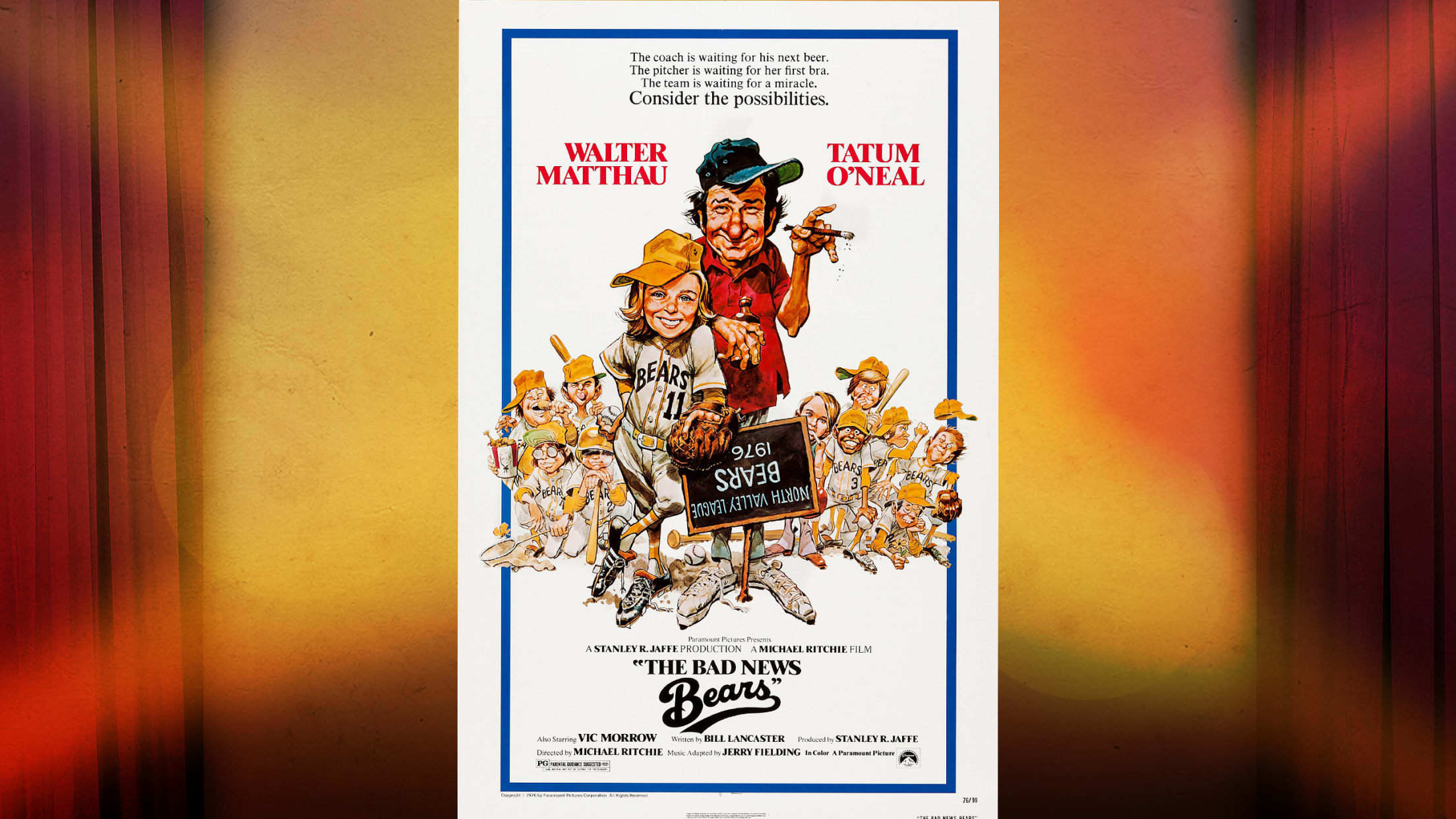
Hoch: Morris Buttermaker is a legend, swigging Budweiser in the dugout.
Sheldon: Chico’s Bail Bonds! Best sponsor ever.
Browne: I like how Matthau realizes from watching the obnoxious Yankees manager that yelling at the players and overplaying the star players at all costs isn’t the way to go so he essentially tanks the championship game when he uses all of his players in the late innings. This is a good lesson on sportsmanship.
Footer: The acting was great. Tatum O’Neal was outstanding, and things got pretty intense in the last 30 minutes or so. As funny as it was, there were some really emotional moments. I’d say it was ahead of its time, but really, it was perfect for the times and really brought you right back to how life was in the ‘70s.
Hoch: Even then, people hated the Yankees.
Browne: Tatum O’Neal was the spot-on tomboy. Nearly every Little League in the ’70s and ’80s had a player like that. I feel like many of them now play softball since it switched to fast pitch.
Sheldon: Also ahead of its time: Buttermaker employed the Carl Paranski shift. Ogilvie was analytical. Who needs Theo Epstein or Joe Maddon?
Bollinger: It really did capture the time period really well, even if some of the dialogue doesn’t hold up as well today.
Hoch: I once watched A-Rod try a play that could’ve been right out of this movie: yelling “Ha!” (or “I got it!”) at the infielders as he ran the bases in Toronto.
Footer: I would like to redo our “best Hollywood ending” roundtable to include “Bad News Bears.” The kids pouring beer on each other for losing the game is one of the greatest moments in cinematic history.
Browne: Loved the ending. Amazing they lost. You never expect that in a movie like this. Thought the ending was really well done.
As a former Little League coach, one year, my team had so much fun the whole year that our team actually celebrated more when we lost the championship game than the winning team did. So I could relate very much to that part of the movie — minus the booze.
Footer: The kid who told the opposing player to buzz off after his insincere olive branch was pure gold.
Sheldon: Heartbreaking scene when Turner got slapped by his dad in front of everybody. He got good revenge, I guess.
Landry: I’m a sucker for an ending where the “heroes” lose.
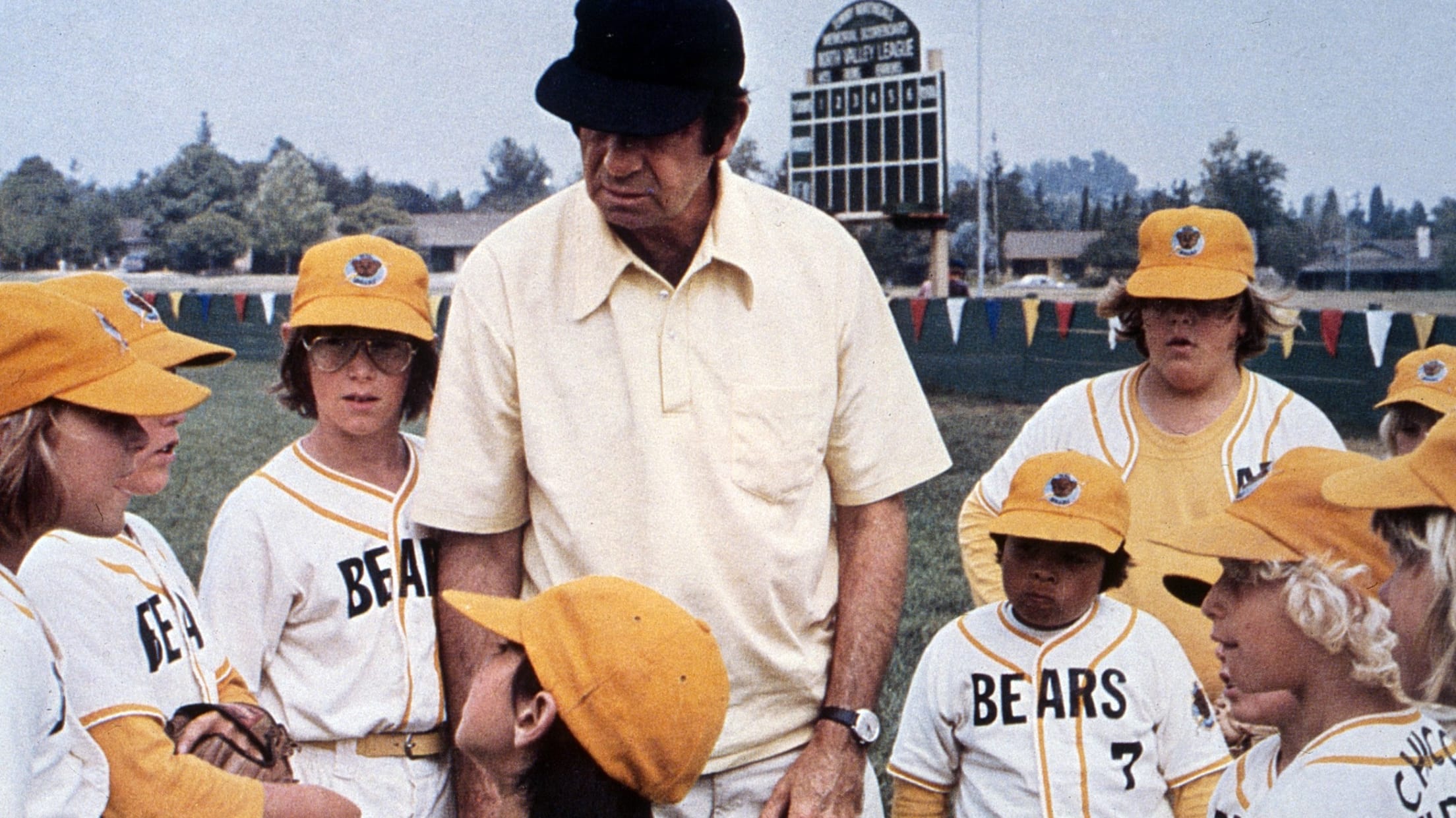
Hoch: Can we just go back to … why in the world did the mayor pick Buttermaker to coach this team? And pay him, too?
Browne: I guess because he was a former pro.
Footer: Let’s move on to “The Sandlot.” This one really resonates with people who were kids when this movie was released. As someone who was NOT a kid in the 1990s, and who saw this movie for the first time as an adult, I’ll say I really liked it, but I did not love it. There were some great scenes and the acting was superb. But it wasn’t a game-changer for me. I did like how much it reminded me of “Stand By Me,” in that it was a perfect coming-of-age film that accurately depicted what it’s like for a tween boy and his friends at that stage of life.
Sheldon: Full confession: I didn’t see “The Sandlot” for the first time until the pandemic lockdown in 2020.
Footer: I first saw it in 2010 when Astros fans on Twitter shamed me into it.
Browne: What a fun movie that brings us back to a time where neighborhood kids played outside all the time and found crazy adventures and trouble to get into all the time.
Landry: I loved this movie. Benny “The Jet” Rodriguez was my first crush. We watched it in third grade during the last week of school and I’ve been attached ever since.
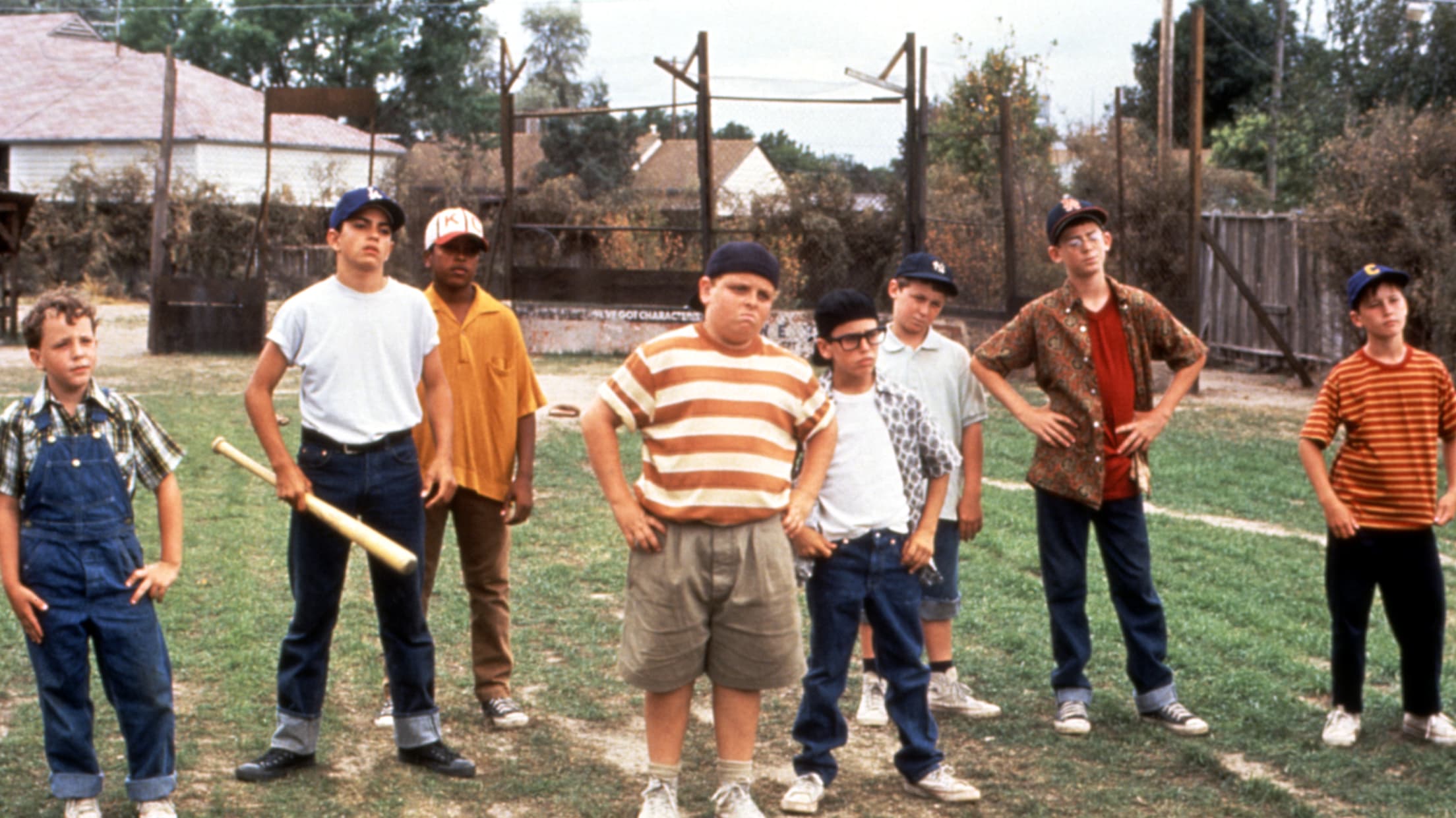
Bollinger: “The Sandlot” was easily my favorite movie growing up and I watched it more times than I can remember. I saw it in theaters when I was 7 and was immediately hooked.
Browne: I looked at it more as a kids-having-great-adventures movie more than a baseball movie.
I love the premise of a sandlot where they just played and played and played every day. I did similar things with my friends, whether it was baseball or basketball, in my youth, so the movie hits home in that way.
Silver: I was one of those who was a kid when “The Sandlot” came out and it was on repeat. The different personalities of the kids, the hijinks, Porter — incredible. The quintessential rainy-day movie at summer camp.
Sheldon: I liked but didn’t love it. I don’t think it’s in the pantheon of great baseball movies. What I liked was the nostalgia and sentiment. I can relate to playing games with neighborhood kids and friends, losing baseballs in yards and on rooftops etc. and working out the conflicts.
Landry: And James Earl Jones deserves an award for being like the absolute perfect old man on the other side of the fence.
Browne: “Why didn’t you just knock?” says James Earl Jones. No kidding, right?
Hoch: Just say “Wendy Peffercorn” and everyone in that generation knows exactly who you’re talking about.
As a kid who struggled to find enough players for 9-on-9 ballgames back then, I wanted to live in their neighborhood.
Footer: Obviously Ham Porter, the redheaded kid, was one of the best characters, with one of the most iconic lines: “You’re killing me, Smalls!” The actor, Patrick Renna, turned into a pretty awesome adult. At “The Sandlot” reunion at the All-Star Game in Washington, D.C., a few years back, Renna addressed the line “You play ball like a girl.” Here’s what he said:
“It is OK to throw like a girl. It was not meant to be an insult. It was actually a compliment.” I like that he recognized the changing times.
Sheldon: He was also playing a kid in the 1960s, when things were even worse than “Bad News Bears” times.
Landry: For what it’s worth, the sequel to “The Sandlot” is not very good, BUT they combine with a girls’ softball team because their sandlot didn’t have enough players. I enjoyed it, even if it’s not as good as the original.
Bollinger: The pool scene was amazing, and I always enjoyed the Fourth of July baseball game where Benny hits the ball so hard it turns to yarn. And Ray Charles’ “America the Beautiful” fits so perfectly in the scene with the fireworks and all that.
Browne: One strike against the movie was not getting Scully for the Dodger Stadium ending.
Silver: My favorite part might have been when the sandlot team played the actual Little League team; the cut scenes of Porter trash-talking them actually felt like a good piece of movie-making. That, and the amusement park scene.
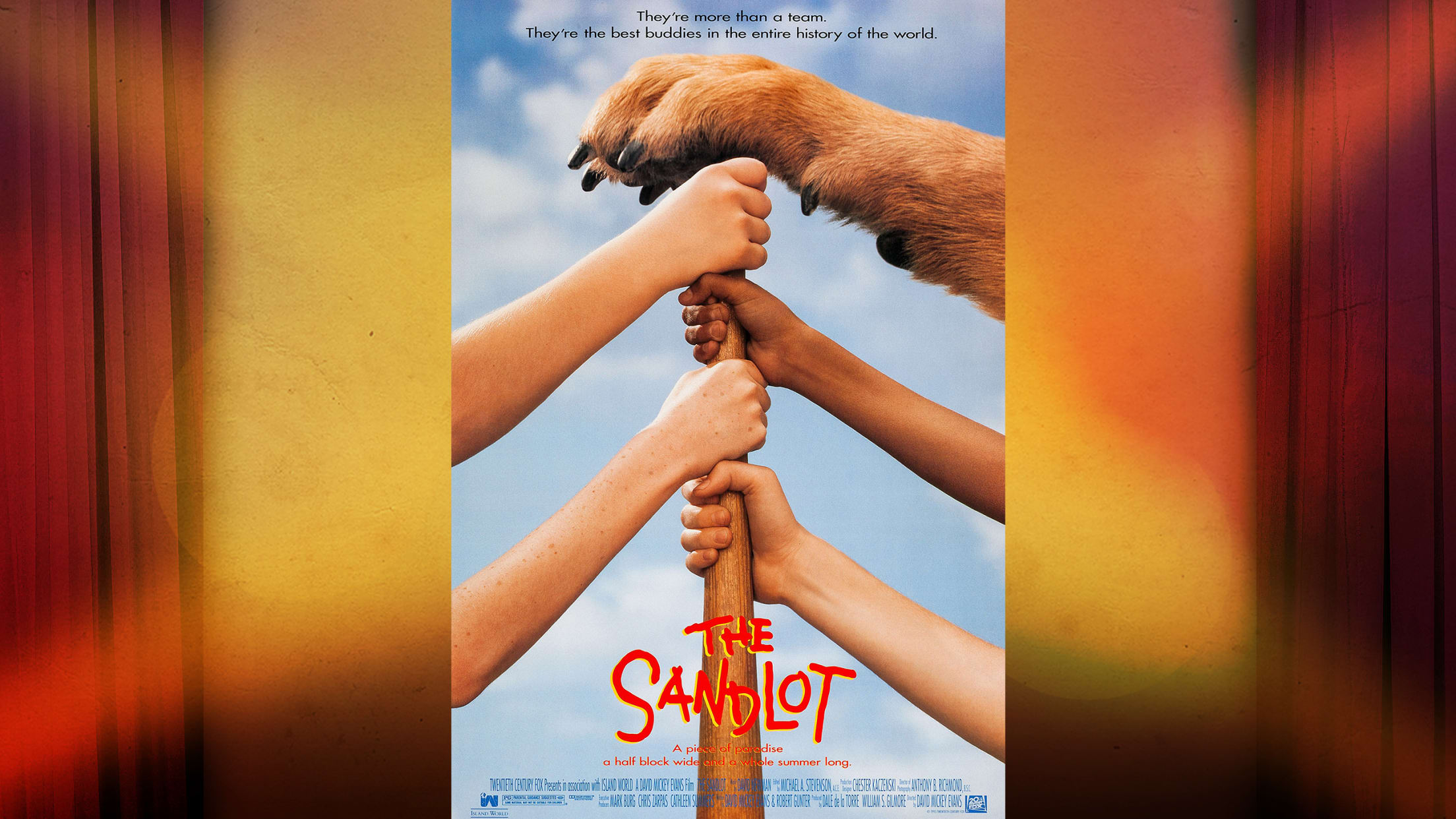
Bollinger: The chewing tobacco scene where they all throw up on the ride seems to get cut whenever it’s re-aired on cable.
Footer: It’s gross in the best way imaginable.
Browne: Who has chewing tobacco at an amusement park?
Footer: 12-year-old boys trying to be cool?
Hoch: There were so many baseball movies in this era, mid-1990s. We need that again.
Footer: Let’s conclude by ranking these films, favorite to least favorite.
Browne:
1. “Bad News Bears”
2. “Rookie of the Year”
3. “The Sandlot”
4. (A distant 4) “Little Big League”
Silver:
1. “The Sandlot”
2 “Bad News Bears”
3. “Rookie of the Year”
4. “Little Big League”
Sheldon:
1. “Bad News Bears”
2. “Little Big League”
3. “The Sandlot”
4. 500 miles of landfill … and “Rookie of the Year”
Landry:
1. “The Sandlot”
2. “Little Big League”
3. “Rookie of the Year”
4. “Bad News Bears” (Because I accidentally watched the 2005 version.)
Hoch:
1. “Rookie of the Year”
2. “Bad News Bears”
3. “The Sandlot”
4. “Little Big League”
Bollinger:
1. “The Sandlot”
2. “Bad News Bears”
3. “Little Big League”
4. “Rookie of the Year”
Think one of these titles is the best baseball movie of all time? Return to MLB.com later this spring to cast your vote and you could find yourself in Hollywood at the 2022 MLB All-Star Game presented by Mastercard in Los Angeles!



